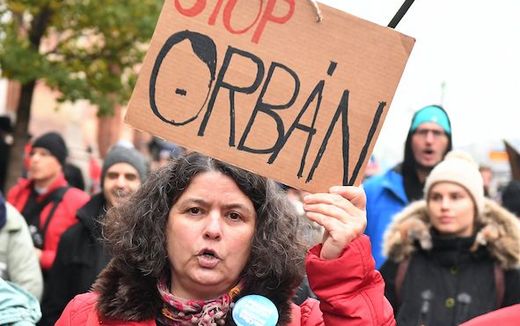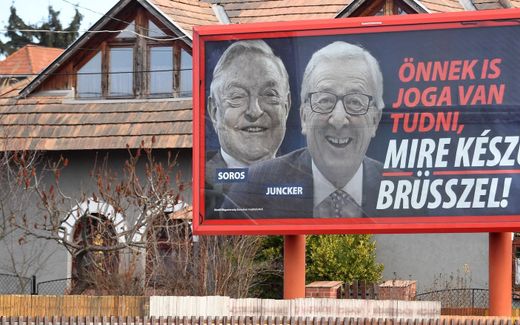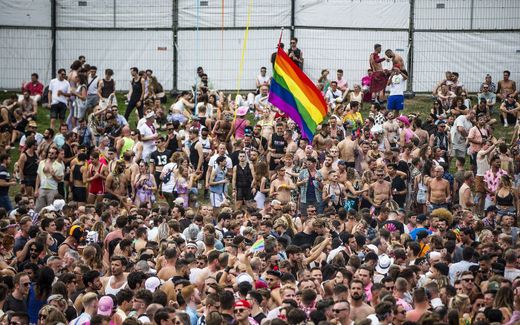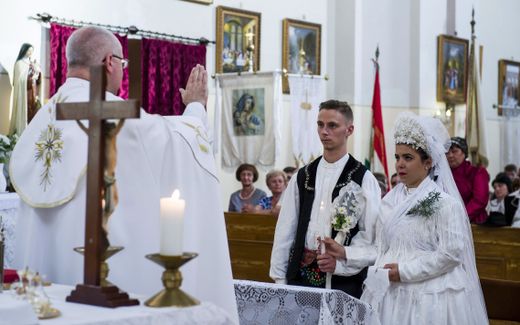Counter-demonstrators regroup after Budapest Pride march
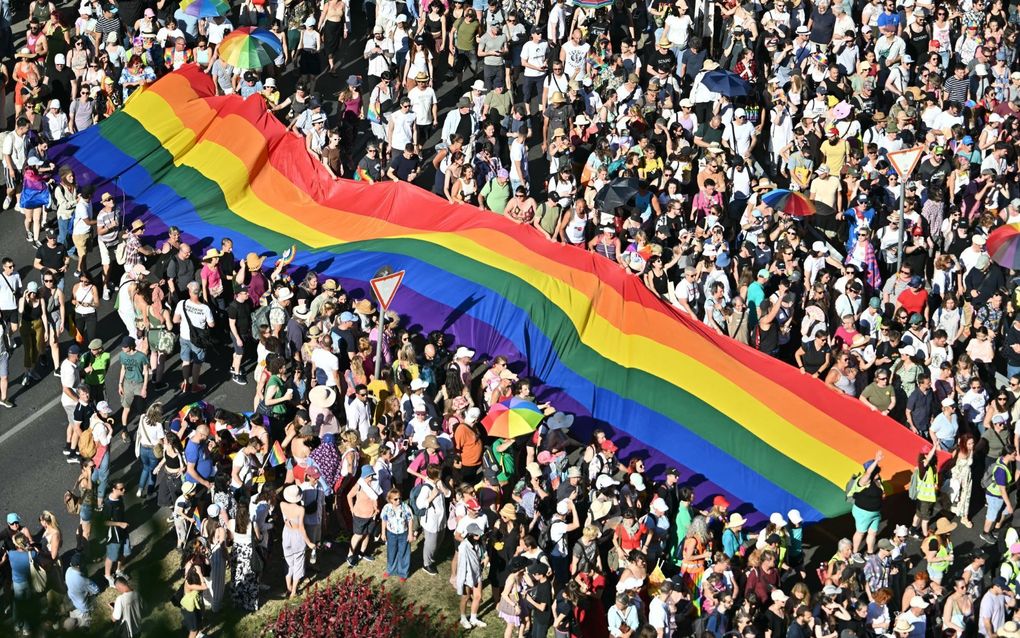
Demonstrators carry the rainbow pride flag at this year's Budapest Pride march. Photo AFP, Attila Kisbenedek
Central Europe
Hungary’s Prime Minister, Viktor Orbán, may have banned this year’s Pride parade, but that did not stop an estimated 200,000 taking part.
Stay up to date with Christian news in Europe? Sign up for CNE’s newsletter.
However, for many organisations who were out to oppose LGBT ideology, several, including those from the international organisation CitizenGo, found themselves blockaded by police. While the event may be seen as a success for participants, many Christian-based organisations saw the march as a key political move to push the acceptance of transgender ideology and redefine gender identity.
István Horváth, head of the Hungarian Evangelical Alliance (Aliansz Magyar Evangéliumi Szövetség), sees the march as an “appearance that occupied the space for a time.” This can be seen as a form of “social pressure,” he says.
“This year, before the elections, there was a particular emphasis on demonstrations by political forces opposed to the government (opposition, mainly left-wing). A significant foreign group also participated in the march, mainly promoting the LGBTQ movement and left-wing political activism.”
Also at the event, CitizenGO Magyarország, a Roman Catholic-based organisation, began its gathering by praying for families and reciting the Rosary.
Other organisations, such as the Hungarian nationalist party Our Homeland (Mi Hazánk), joined CitizenGo to create a roadblock against the demonstrators. However, the plan soon backfired when police officers stopped them from entering the parade via the riverbank despite getting permission to do so in previous years.
When the counter-protestors tried to proceed, the police said: “There are fifty of you here, there are thousands of them. Tough luck, make a complaint if you wish; according to the Hungary Today post.”
While some see counter-protestor activity as a potential disruption, Bela Teleki, a campaign director for Hungary's CitizenGo, believes their presence was necessary to defend traditional values.
“This year’s Pride event marked a significant setback. Despite official disapproval, the march was allowed to go ahead with high-profile foreign support and wide media coverage. As has often been the case in recent years, the government largely acted without coordinated input from civil society.
This is why our prayer event was so important: to demonstrate that ordinary citizens, particularly Christian families and fathers, still have a public voice,” he says in a written statement to CNE.
Previously, Orbán passed a law that imposed criminal consequences if an event was organised based on the “depiction or the promotion” of same-sex practices to minors, The Guardian reported. Earlier this month, police agreed to adhere to government orders and impose the prime minister’s ban on the march.
However, the tone soon changed when Budapest’s mayor, Gergely Karácsony, approved the march as a “separate municipal event” that would not require an “official authorisation.” The move came as part of the mayor’s discontent at Hungary’s Conservative Christian government, which he believes is “weakening democratic institutions and undermining its national rule of law.”
Despite the mayor’s move, Orbán warned on Friday that any organisers and participants in the event could face criminal consequences. A video released by the national justice minister, Bence Tuzson, also warned the mayor that those found “organising a banned event or encouraging people to attend” can go to prison for up to a year.
The Guardian reported that when the event was held on 28 June, police could not intervene as the numbers swelled into the hundreds of thousands.
While Hungary has been among the few EU holdouts for defending traditional values, CitizenGo is seeing more political pressure from public figures such as city mayors.
“The issue has become heavily politicised. Several progressive politicians, such as the Mayor of Amsterdam, have used the event to exert ideological pressure on Hungary,” the organisation says.
CitizenGo also raised the issue of political pressure in a petition they had posted online.
It calls on the national deputy minister to impose a “complete ban on Pride parades and similar gatherings”, rainbow paraphernalia such as pride flags, and the formation of a constitutional amendment that “strengthens child protections.” So far, almost 12,500 people have signed the petition.
However, more needs to be done when defending Hungary’s traditional values, Bela Teleki from CitizenGo believes, and many conservative leaders should be held responsible.
“Unfortunately, many conservative leaders respond passively, leaving civil society actors like us to hold the front lines. We believe that defending family, faith, and the natural order should not be partisan—but rather a unified European concern, addressed with courage and clarity,” the organisation writes.
Evangelical Alliance
István Horváth from the Hungarian Evangelical Alliance believes that the parade is not widely discussed within the nation’s Christian churches. He adds that a few pro and con voices have taken their opposition to social media, but not much was done about it afterwards.
As for the future, the Evangelical Alliance has no plans to get involved in upcoming marches.
“We operate as an association, and according to the current legislation, civil organisations do not carry out political activities; for such reason, various parties were formed,” Horváth says.
He elaborates further that “we want to represent the values of the Gospel in an evangelical and not a political way.”
Horváth leaves a message to all people which comes from 2 Corinthians 5:20 in the Bible: “We are therefore Christ’s ambassadors, as though God were making his appeal through us. We implore you on Christ’s behalf: Be reconciled to God.”
As for CitizenGo, however, the organisation would like to become more involved in the nation's political scene. They would like to see more reforms within the nation’s school curriculum, particularly within Hungary’s sex education, which has been absent in its schools since 2021.
“There is great untapped potential among Hungary’s pro-life, pro-family, and faith-based communities. With proper support, they can offer strong resistance to destructive trends while providing real alternatives rooted in compassion and truth,” Teleki says.
Related Articles


